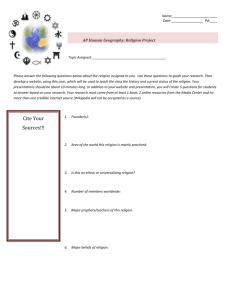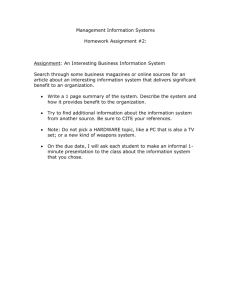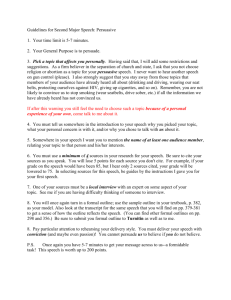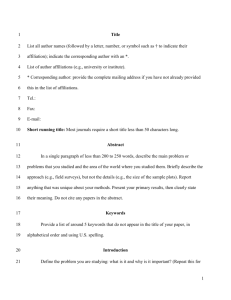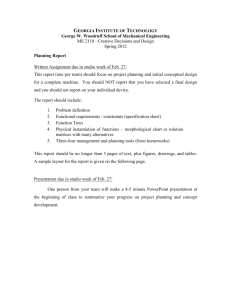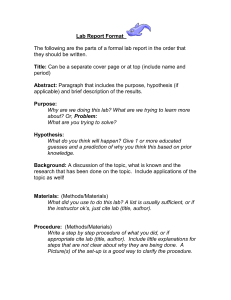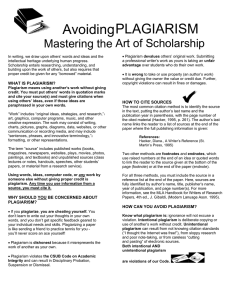In-text citations
advertisement
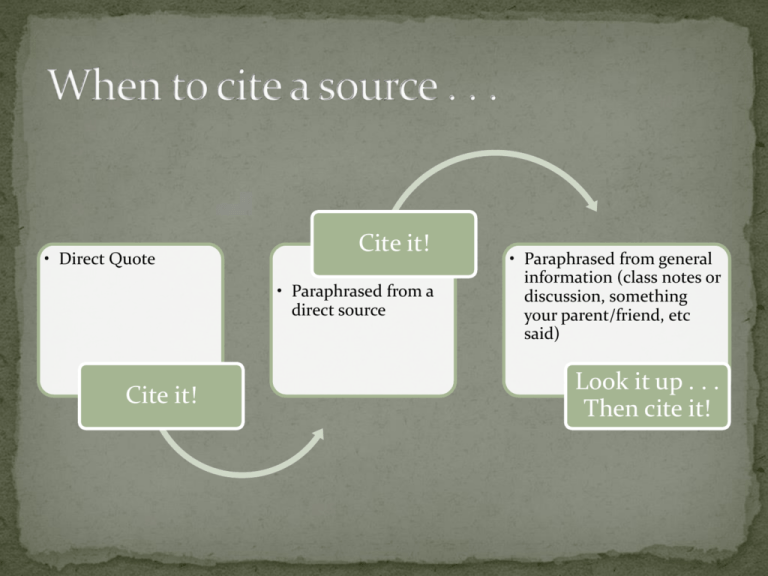
• Direct Quote Cite it! • Paraphrased from a direct source Cite it! • Paraphrased from general information (class notes or discussion, something your parent/friend, etc said) Look it up . . . Then cite it! They are someone else’s intellectual property . . . The direct quote – clearly belongs to the person who said it The paraphrased information – while in your own words, you didn’t complete the initial research which found the information. It still belongs to the person who wrote it. General information – this is the hardest one! The information someone told you (in class, in the hall, at dinner) still came from somewhere. How do you cite this? You can either cite the person: Burke, Angel. Advanced Placement Notes. “Shakespeare’s Life and Times”. November 2008. A better idea . . . Look up the information. Again, your source got the information somewhere. Then cite the original source. If not, you are guilty of plagiarism! “Your research paper is a collaboration between you and your sources. To be fair and ethical, you must acknowledge your debt to the writers of those sources. If you don’t, you are guilty of plagiarism, a serious academic offense. Three different acts are considered plagiarism: (1) failing to cite quotations and borrowed ideas, (2) failure to enclose borrowed language in quotation marks, and (3) failing to put summaries and paraphrases in your own words” (Hacker 115). Seriously? OK – In-text citations are placed directly after the researched information (directly quoted or paraphrased) and include a small piece of information. This citation lets the reader know to check for a works cited page. Works Cited Page – where you place the full information (look in your agenda if you’re not sure about the format) for the source used. Works Consulted – if you read background information, but did not cite directly (including paraphrased information) from the source. You still have to give credit where credit is due! This seems like more work, why not just write about what I know/have observed?!?! Outside research substantiates what you have observed. Outside research will help you prove your thesis and show thought, effort and depth in your essay. Works Cited Hacker, Diana. A Pocket Style Manual. 4th ed. Boston: Bedford/St. Martin’s, 2004.
